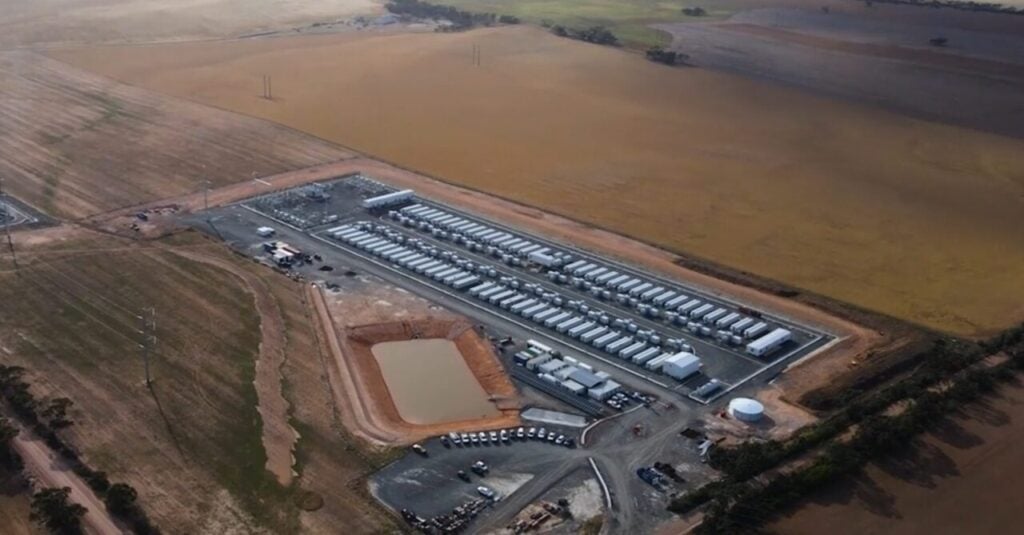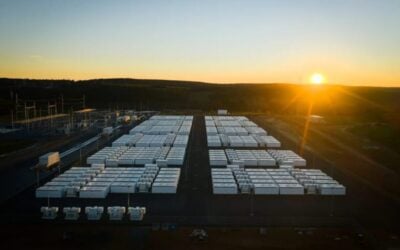
The South Australian government is preparing to launch a new long-duration energy storage (LDES) tender seeking projects with a minimum of 30MW output and at least 8-hour storage duration.
The state government is advancing the development and implementation of its Firm Energy Reliability Mechanism. The second stage consultation started earlier this week.
According to the consultation paper, the mechanism aims to provide long-duration firming capacity to maintain grid reliability, especially as more renewable energy generation technologies connect and become operational.
The framework would seek to secure 30MW and 8-hour continuous dispatch capacity. The mechanism would introduce a five-year target, which will be revealed in due course.
Try Premium for just $1
- Full premium access for the first month at only $1
- Converts to an annual rate after 30 days unless cancelled
- Cancel anytime during the trial period
Premium Benefits
- Expert industry analysis and interviews
- Digital access to PV Tech Power journal
- Exclusive event discounts
Or get the full Premium subscription right away
Or continue reading this article for free
The Firm Energy Reliability Mechanism would provide underwriting support intended as a revenue ‘top-up’ when required, ensuring LDES providers remain in the market for the relevant commitment period.
This support is intended to allow these assets to recover their efficiency cost of operation and earn an economic return commensurate with the risks involved in operation.
In return for this support, contracted LDES capacity providers must be available for dispatch year-round, and their performance must be assessed.
South Australia requires 2,400MW of long-duration storage capacity in the next five years
South Australia’s renewable energy prowess has been well documented. For instance, the state ran on over 100% renewable energy from 26 August to 1 September, as the country transitioned from winter to spring.
Solar PV has been one of the biggest drivers for renewable energy in the state, both in distributed, such as rooftop, and utility-scale forms. However, despite this growth, the decommissioning and withdrawal of gas-fired generation and coal-fired power pose a challenge to maintaining grid stability and resiliency.
This could allow energy storage to play a vital role in the state’s energy transition. Indeed, the government identified in its 2024 Electricity Development Plan that around 2,400MW of LDES capacity will likely be required in South Australia within the next five years.
Creating a mechanism incentivising LDES projects could be core to delivering this necessary capacity. Australia’s Clean Energy Council agrees with this perspective, publicly stating that it supports the mechanism.
However, the trade association emphasised that it must be “clear to industry, and the contractual obligations should minimise impacts on operation, contract market, bankability, and investment signals.”
According to the consultation paper, most stakeholders support the new mechanism, with three key themes having emerged from their feedback.
This includes reliability and resilience at least cost, liquidity and competition, and the external environment.
Under the reliability and reliance at least cost section, stakeholders believe that the costs associated with the scheme, along with the possible cost impacts in the future, must be minimised.
Stakeholders also argue that the scheme’s revenue underwriting mechanism and net revenue calculation may negatively impact liquidity by disincentivising market contracting.
The consultation also adds that the interface between the scheme and other broader market changes, such as the Wholesale National Electricity Market (NEM) Review and the Orderly Exit Management Framework (OEMF), needs to be clarified.
Interested parties can learn more about the mechanism and provide submissions on the official website. The window to provide submissions will close at midnight on 14 July 2025.





